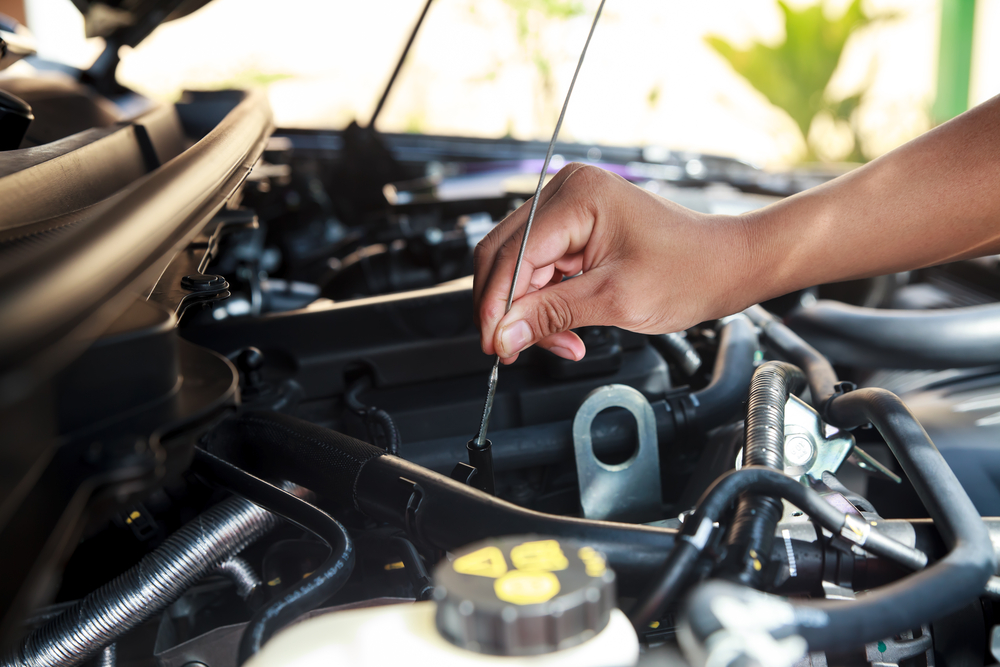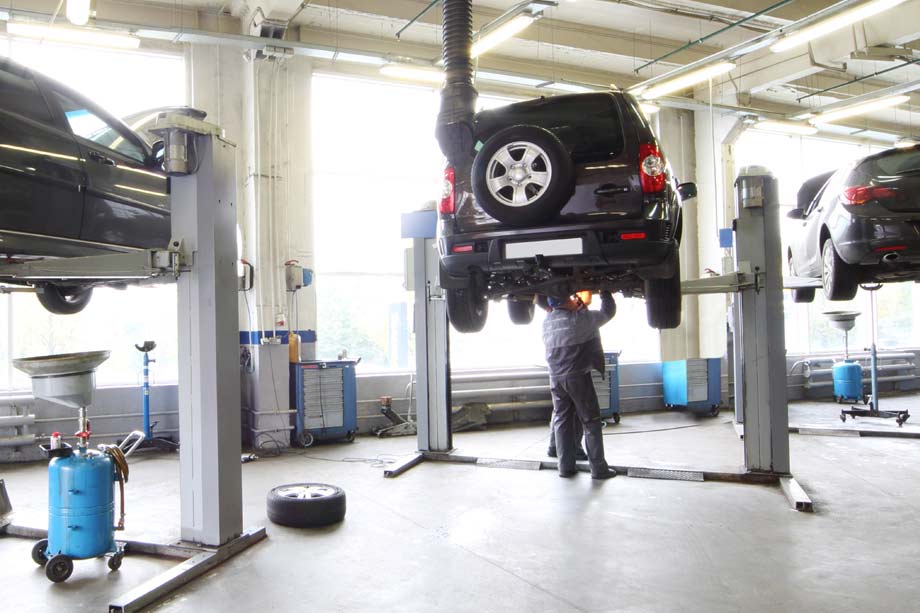All Categories
Featured
Liable for integrating the rotation of the crankshaft and camshaft, the timing belt guarantees the engine's valves close and open at the correct times throughout the burning procedure. If the timing belt fails, it can result in serious engine damage.
What Is a Timing Belt? The timing belt is a long, toothed rubber or composite belt that attaches the crankshaft to the camshaft(s) in an interior combustion engine. Its job is to keep the engine's valves and pistons in sync, making sure the engine runs effectively. The timing belt also regulates various other essential engine functions like the water pump and the power guiding pump, relying on the lorry.
![]()
Without the proper timing, the engine's valves and pistons can collide, resulting in expensive and considerable damage. Replacing the timing belt on timetable is one of the best ways to ensure your engine operates at its best and protect against pricey repair services.
Why Timing Belt Replacement Matters. Preventing Catastrophic Engine Damages: The most significant risk of not replacing a worn timing belt is engine failing. Changing the timing belt at the suggested intervals is the ideal method to stop such tragic damages, conserving you from the stress and anxiety and high expense of engine fixings or replacement.
![]()
Maintaining Engine Effectiveness: A timing belt that's in good condition makes sure that all engine components work in perfect consistency. If the timing belt is worn or extended, it can trigger the engine to lose power, experience rough idling, or battle to begin. By changing the timing belt on a regular basis, you can maintain your engine running at peak effectiveness, which assists keep optimum fuel economy and performance.
Staying Clear Of Unanticipated Break downs: A broken timing belt can trigger your engine to quit abruptly, possibly leaving you stranded in the middle of a journey. By replacing your timing belt in a timely manner, you decrease the risk of unexpected breakdowns that could leave you in a bothersome or unsafe situation. Normal upkeep lowers the possibilities of experiencing these sort of disturbances, assisting you remain on the road much longer without fretting about your engine falling short.
Affordable Maintenance: Timing belt replacement is much more economical than fixing or replacing an engine that's been harmed because of a timing belt failure. While the expense of changing the timing belt might vary depending on your vehicle and its area, it is even more affordable than the expenses related to significant engine repairs or replacements. Changing your timing belt at the advised intervals can save you a considerable quantity of money over the long run by preventing damage to your engine.
When Should You Change Your Timing Belt? The timing belt doesn't last forever, and the majority of suppliers advise changing it in between 60,000 and 100,000 miles. The specific timing depends on your automobile's make, design, and driving problems, so it's important to check your owner's guidebook for particular support.
Signs that your timing belt may require focus consist of unusual engine noises (such as a piercing whining or ticking noise), difficulty starting the engine, or a decrease in engine performance. If you discover any of these indicators, it's critical to have the timing belt examined by a professional technician.
![]()
Verdict. The timing belt is a small yet crucial component of your engine, and regular replacement is crucial to maintaining your lorry's efficiency and avoiding expensive damage. By staying on top of timing belt upkeep, you'll guarantee your engine runs efficiently, stay clear of unexpected break downs, and safeguard your cars and truck from significant repair services. Watch on your vehicle's suggested timing belt substitute routine, and always consult with a trusted auto mechanic to keep your engine running efficiently for several years ahead.
What Is a Timing Belt? The timing belt is a long, toothed rubber or composite belt that attaches the crankshaft to the camshaft(s) in an interior combustion engine. Its job is to keep the engine's valves and pistons in sync, making sure the engine runs effectively. The timing belt also regulates various other essential engine functions like the water pump and the power guiding pump, relying on the lorry.

Without the proper timing, the engine's valves and pistons can collide, resulting in expensive and considerable damage. Replacing the timing belt on timetable is one of the best ways to ensure your engine operates at its best and protect against pricey repair services.
Why Timing Belt Replacement Matters. Preventing Catastrophic Engine Damages: The most significant risk of not replacing a worn timing belt is engine failing. Changing the timing belt at the suggested intervals is the ideal method to stop such tragic damages, conserving you from the stress and anxiety and high expense of engine fixings or replacement.

Maintaining Engine Effectiveness: A timing belt that's in good condition makes sure that all engine components work in perfect consistency. If the timing belt is worn or extended, it can trigger the engine to lose power, experience rough idling, or battle to begin. By changing the timing belt on a regular basis, you can maintain your engine running at peak effectiveness, which assists keep optimum fuel economy and performance.
Staying Clear Of Unanticipated Break downs: A broken timing belt can trigger your engine to quit abruptly, possibly leaving you stranded in the middle of a journey. By replacing your timing belt in a timely manner, you decrease the risk of unexpected breakdowns that could leave you in a bothersome or unsafe situation. Normal upkeep lowers the possibilities of experiencing these sort of disturbances, assisting you remain on the road much longer without fretting about your engine falling short.
Affordable Maintenance: Timing belt replacement is much more economical than fixing or replacing an engine that's been harmed because of a timing belt failure. While the expense of changing the timing belt might vary depending on your vehicle and its area, it is even more affordable than the expenses related to significant engine repairs or replacements. Changing your timing belt at the advised intervals can save you a considerable quantity of money over the long run by preventing damage to your engine.
When Should You Change Your Timing Belt? The timing belt doesn't last forever, and the majority of suppliers advise changing it in between 60,000 and 100,000 miles. The specific timing depends on your automobile's make, design, and driving problems, so it's important to check your owner's guidebook for particular support.
Signs that your timing belt may require focus consist of unusual engine noises (such as a piercing whining or ticking noise), difficulty starting the engine, or a decrease in engine performance. If you discover any of these indicators, it's critical to have the timing belt examined by a professional technician.

Verdict. The timing belt is a small yet crucial component of your engine, and regular replacement is crucial to maintaining your lorry's efficiency and avoiding expensive damage. By staying on top of timing belt upkeep, you'll guarantee your engine runs efficiently, stay clear of unexpected break downs, and safeguard your cars and truck from significant repair services. Watch on your vehicle's suggested timing belt substitute routine, and always consult with a trusted auto mechanic to keep your engine running efficiently for several years ahead.
Latest Posts
The History and Evolution of Gate and Fence Designs
Published Jan 04, 25
1 min read
Cataracts Explained: Symptoms, Causes, and Available Treatments
Published Jan 03, 25
1 min read
Recognizing When Your Commercial Roof Needs a Replacement: Proactive Tips
Published Jan 02, 25
1 min read
More
Latest Posts
The History and Evolution of Gate and Fence Designs
Published Jan 04, 25
1 min read
Cataracts Explained: Symptoms, Causes, and Available Treatments
Published Jan 03, 25
1 min read
Recognizing When Your Commercial Roof Needs a Replacement: Proactive Tips
Published Jan 02, 25
1 min read